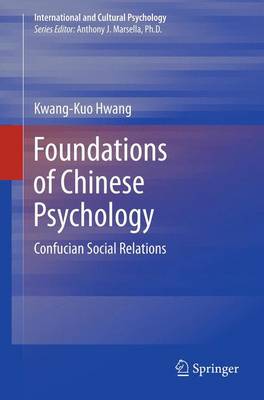International and Cultural Psychology
1 primary work
Book 1
Mainstream psychology emanated from European-American and Judeo-Christian philosophical and scientific traditions. The application of this viewpoint, which embeds colonial and imperialist concepts is less relevant to Asian and other indigenous cultures. Although it has been accepted by non-Western scholars in an attempt to emulate Western scientific practice, the mainstream viewpoint is in a process of transformation to accommodate geographically relevant perspectives. In this light, Foundations of Chinese Psychology, bridges the gap between western and eastern traditions and elaborates on theories based on local phenomena, findings, and experiences by research methods that are contextually appropriate.
Using a guiding principle of cultural psychology – ‘one mind, many mentalities’, this book advocates the balancing of a global psychology concept without sacrificing that of a specific locality and people. It analyzes the basics of Confucionism and compares them to Western ethical thinking, arriving at a series of theories concerning social exchange, face, achievement motivation, organizational behaviors, and conflict resolution.
Beyond the specifics of a particular culture, this book exemplifies the act of constructing autonomous social science that may be emulated in other non-Western settings. It also serves as an excellent guide for cross-cultural research as well as a caveat on the limitations of presumptive individualism and exclusionary perspectives.
